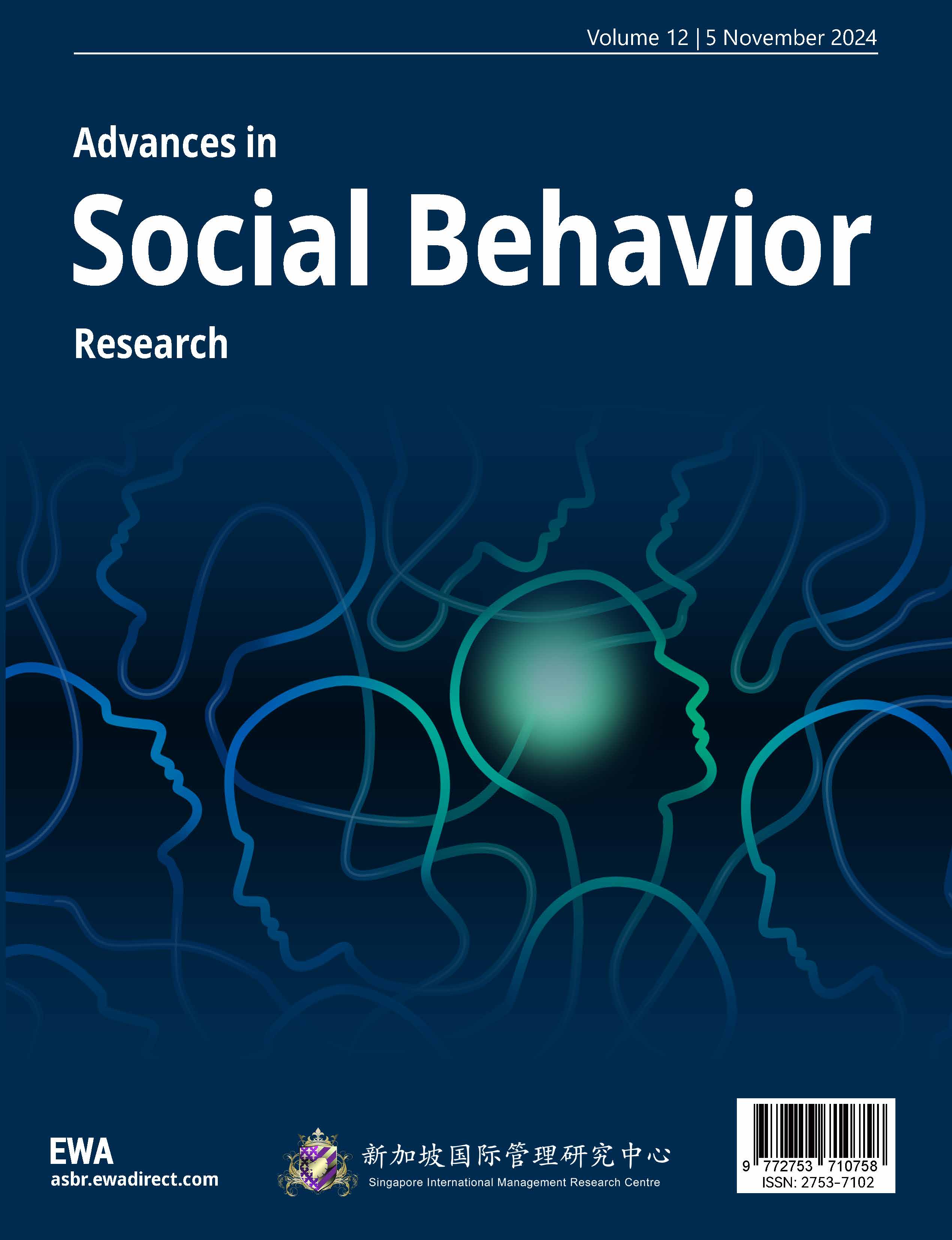References
[1]. Daramola, O. M., Apeh, C. E., Basiru, J. O., Onukwulu, E. C., & Paul, P. O. (2023). Optimizing reverse logistics for circular economy: Strategies for efficient material recovery and resource circularity. International Journal of Social Science Exceptional Research, 2(1), 16–31.
[2]. Peng, B., Wang, Y., Elahi, E., & Wei, G. (2023). A system dynamics prospective analysis of extended producer responsibility in Colombia’s packaging sector. Circular Economy and Sustainability, 3(1), 47–65.
[3]. Kumar, S., & Dixit, G. (2022). Circular economy through waste reverse logistics under extended producer responsibility: A system architecture perspective. Waste Management & Research, 40(11), 1234–1245.
[4]. Ding, H., Wang, Y., & Chan, F. T. S. (2022). Establishing reverse logistics for a circular economy: A systematic review. Journal of Cleaner Production, 350, 131489.
[5]. Ramasubramanian, B., Tan, J., Chellappan, V., & Ramakrishna, S. (2023). Recent advances in extended producer responsibility initiatives for plastic waste management in Germany and the UK. Materials Circular Economy, 5(1), 6.
[6]. Modupe, D. O., Apeh, C. E., Basiru, J. O., Onukwulu, E. C., & Paul, P. O. (2023). Optimizing reverse logistics for circular economy: Strategies for efficient material recovery and resource circularity. International Journal of Social Science Exceptional Research, 2(1), 16–31.
[7]. Batista, L., Gong, Y., Pereira, S., Jia, F., & Bittar, A. (2022). Circular supply chains in emerging economies: A comparative study of packaging recovery ecosystems in China and Brazil. International Journal of Production Research, 60(12), 3751–3770.
[8]. Kaipainen, J., Urbinati, A., Chiaroni, D., & Aarikka-Stenroos, L. (2022). How companies innovate business models and supply chains for a circular economy: A multiple-case study and framework. International Journal of Innovation Management, 26(5), 2250041.
[9]. Aarikka-Stenroos, L., Chiaroni, D., Kaipainen, J., & Urbinati, A. (2022). Companies' circular business models enabled by supply chain collaborations: An empirical-based framework, synthesis, and research agenda. Industrial Marketing Management, 105, 295–308.
[10]. Rashid, A., Asif, F. M. A., Krajnik, P., & Nicolescu, C. M. (2021). Resource conservative manufacturing: An essential change in business and technology paradigm for sustainable manufacturing. Journal of Cleaner Production, 278, 123–134.
Cite this article
Yao,Q. (2025). Platform governance and green responsibility: innovative applications and policy synergies of Extended Producer Responsibility in e-commerce recycling systems. Advances in Social Behavior Research,16(4),116-120.
Data availability
The datasets used and/or analyzed during the current study will be available from the authors upon reasonable request.
Disclaimer/Publisher's Note
The statements, opinions and data contained in all publications are solely those of the individual author(s) and contributor(s) and not of EWA Publishing and/or the editor(s). EWA Publishing and/or the editor(s) disclaim responsibility for any injury to people or property resulting from any ideas, methods, instructions or products referred to in the content.
About volume
Journal:Advances in Social Behavior Research
© 2024 by the author(s). Licensee EWA Publishing, Oxford, UK. This article is an open access article distributed under the terms and
conditions of the Creative Commons Attribution (CC BY) license. Authors who
publish this series agree to the following terms:
1. Authors retain copyright and grant the series right of first publication with the work simultaneously licensed under a Creative Commons
Attribution License that allows others to share the work with an acknowledgment of the work's authorship and initial publication in this
series.
2. Authors are able to enter into separate, additional contractual arrangements for the non-exclusive distribution of the series's published
version of the work (e.g., post it to an institutional repository or publish it in a book), with an acknowledgment of its initial
publication in this series.
3. Authors are permitted and encouraged to post their work online (e.g., in institutional repositories or on their website) prior to and
during the submission process, as it can lead to productive exchanges, as well as earlier and greater citation of published work (See
Open access policy for details).
References
[1]. Daramola, O. M., Apeh, C. E., Basiru, J. O., Onukwulu, E. C., & Paul, P. O. (2023). Optimizing reverse logistics for circular economy: Strategies for efficient material recovery and resource circularity. International Journal of Social Science Exceptional Research, 2(1), 16–31.
[2]. Peng, B., Wang, Y., Elahi, E., & Wei, G. (2023). A system dynamics prospective analysis of extended producer responsibility in Colombia’s packaging sector. Circular Economy and Sustainability, 3(1), 47–65.
[3]. Kumar, S., & Dixit, G. (2022). Circular economy through waste reverse logistics under extended producer responsibility: A system architecture perspective. Waste Management & Research, 40(11), 1234–1245.
[4]. Ding, H., Wang, Y., & Chan, F. T. S. (2022). Establishing reverse logistics for a circular economy: A systematic review. Journal of Cleaner Production, 350, 131489.
[5]. Ramasubramanian, B., Tan, J., Chellappan, V., & Ramakrishna, S. (2023). Recent advances in extended producer responsibility initiatives for plastic waste management in Germany and the UK. Materials Circular Economy, 5(1), 6.
[6]. Modupe, D. O., Apeh, C. E., Basiru, J. O., Onukwulu, E. C., & Paul, P. O. (2023). Optimizing reverse logistics for circular economy: Strategies for efficient material recovery and resource circularity. International Journal of Social Science Exceptional Research, 2(1), 16–31.
[7]. Batista, L., Gong, Y., Pereira, S., Jia, F., & Bittar, A. (2022). Circular supply chains in emerging economies: A comparative study of packaging recovery ecosystems in China and Brazil. International Journal of Production Research, 60(12), 3751–3770.
[8]. Kaipainen, J., Urbinati, A., Chiaroni, D., & Aarikka-Stenroos, L. (2022). How companies innovate business models and supply chains for a circular economy: A multiple-case study and framework. International Journal of Innovation Management, 26(5), 2250041.
[9]. Aarikka-Stenroos, L., Chiaroni, D., Kaipainen, J., & Urbinati, A. (2022). Companies' circular business models enabled by supply chain collaborations: An empirical-based framework, synthesis, and research agenda. Industrial Marketing Management, 105, 295–308.
[10]. Rashid, A., Asif, F. M. A., Krajnik, P., & Nicolescu, C. M. (2021). Resource conservative manufacturing: An essential change in business and technology paradigm for sustainable manufacturing. Journal of Cleaner Production, 278, 123–134.









